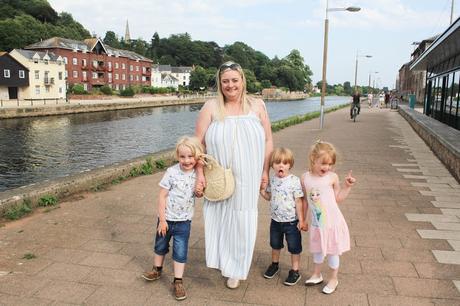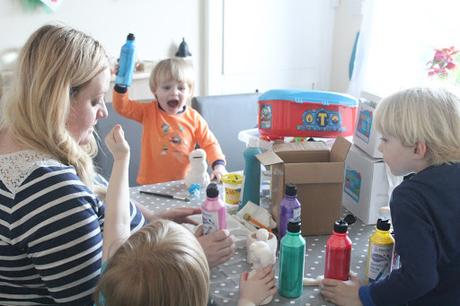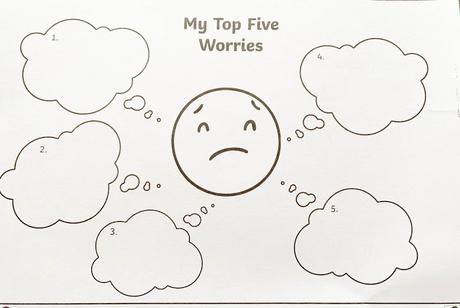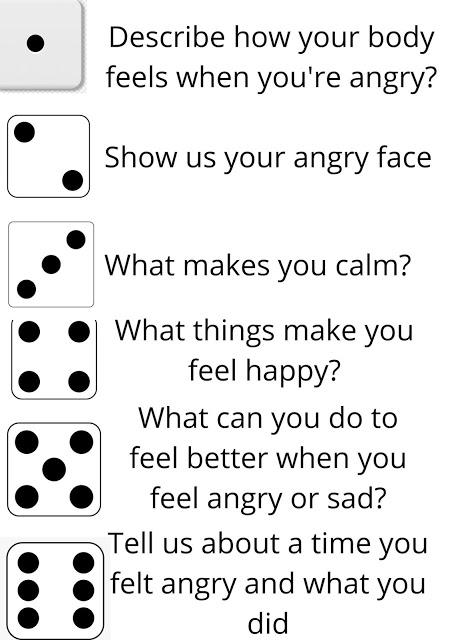
As someone who has suffered with various mental health problems over the years, I am passionate about promoting an open and honest environment for mental health discussions in my own home.
My children are currently ages 4, 5 and 7 which many people may think is too young for discussing the subject of mental health but I strongly disagree. In my opinion, the earlier we become aware of what mental health is as well as how to promote positive mental health within ourselves, the better.
According to research done by Mind, 1 in 4 people in England will experience a mental health issue each year. (Source) - with the figures so high and reportedly climbing, it's important that we are arming our children with both knowledge and ensuring that they understand the importance of opening up about our mental health. As a mother to boys in particular, this is something I'm very aware of. All too often boys pick up the messaging from society that it's somehow "not masculine" to discuss their mental health or express their emotions - this is something I have actively challenged and will continue to challenge throughout their childhoods.
But how exactly do we promote positive mental health practises with our children?
Here are my 3 top tips:
1) Provide Positive Role Models
The use of positive role models is very important when trying to teach our children most things in life, and mental health is no different.
One great example for children of how mental health works and can affect us is the movie Inside Out which uses an array of emotion-based characters in the mind of a young girl named Riley to tell the story - the movie provides a great opportunity to discuss our own mental health, and can help children to understand various conflicting emotions.I also think that it's important to act as positive role models for our children ourselves, by choosing to be honest and open our own mental health in an age-appropriate manner.
2) Use Reading Materials
There are hundreds of fantastic books available for children on the subject of mental health. Ranging from dealing with specific subjects such as bereavement or bullying, to raising general awareness of what mental health is and how to ensure we're keeping our minds healthy - there are books available to help with all of this.There are also some fantastic books available specifically for the children of parents who are struggling with their own mental health issues, to help explain this to them.
3) Call Out Negative Messaging
Just as important as providing positive mental health role models, is calling out the negative. Unfortunately there is a lot of outdated messaging in many childrens TV shows - for example this week my son watched an episode of Horrid Henry in which the main character expressed that "Boys who cry are whimps" - to let this pass by without addressing it could have meant that he internalised that damaging message, so instead I feel it's important to address it. I expressed my surprise at what the character had said and talked about why it was incorrect, which allowed my son to express his own feelings on the subject.
In order to find ways to regularly discuss mental health and emotions with my children, I like to use various activities to promote the discussion of these subjects in our home so I'm going to share my favorite two with you.

Mental Health Colouring Activities
I begin by printing off a large, blank emoji face and then ask the children to color it in - adding a mouth that reflects how they are currently feeling. This could be a smile, a sad frown, an anxious squiggly mouth.
Once they've coloured in their pictures, I then use this as an opportunity to discuss how they're feeling and why that is. This can be a great way to get children to understand how to examine their own emotions and express them.
Another favorite of mine is to promote positive self-image by asking the children to draw a rainbow and fill in one positive trait they possess in each band of the rainbow.

Understanding Our Emotions Dice Game
This is a great game to play with children when they're struggling with particular emotions, particularly anger or anxiety.
All you need is a dice!
Each number that you roll requires you to do one particular thing:

I recently played this game with my eldest son after a period where he had struggled to find ways to express his frustrations after losing a board game with his siblings.
Using the dice game, he was able to identify behaviours he'd displayed in anger that were not constructive and together we could then discuss and explore other ideas for him to try in future when his frustration is difficult to manage. I love using this game as it enables me to discuss unconstructive emotional responses with my children in a safe environment, without shaming them.
If you have an interest in promoting childrens and teen's mental health, then you could be a great candidate for fostering. Did you know that there is currently a national shortage of foster carers? Click here to find out more about becoming a foster carer
If you have any ideas for ways to discuss mental health with children, please feel free to share them below - I'd love to hear them!
If you enjoy my blog, please consider following me on Bloglovin'
